ReNeu BioTech Science
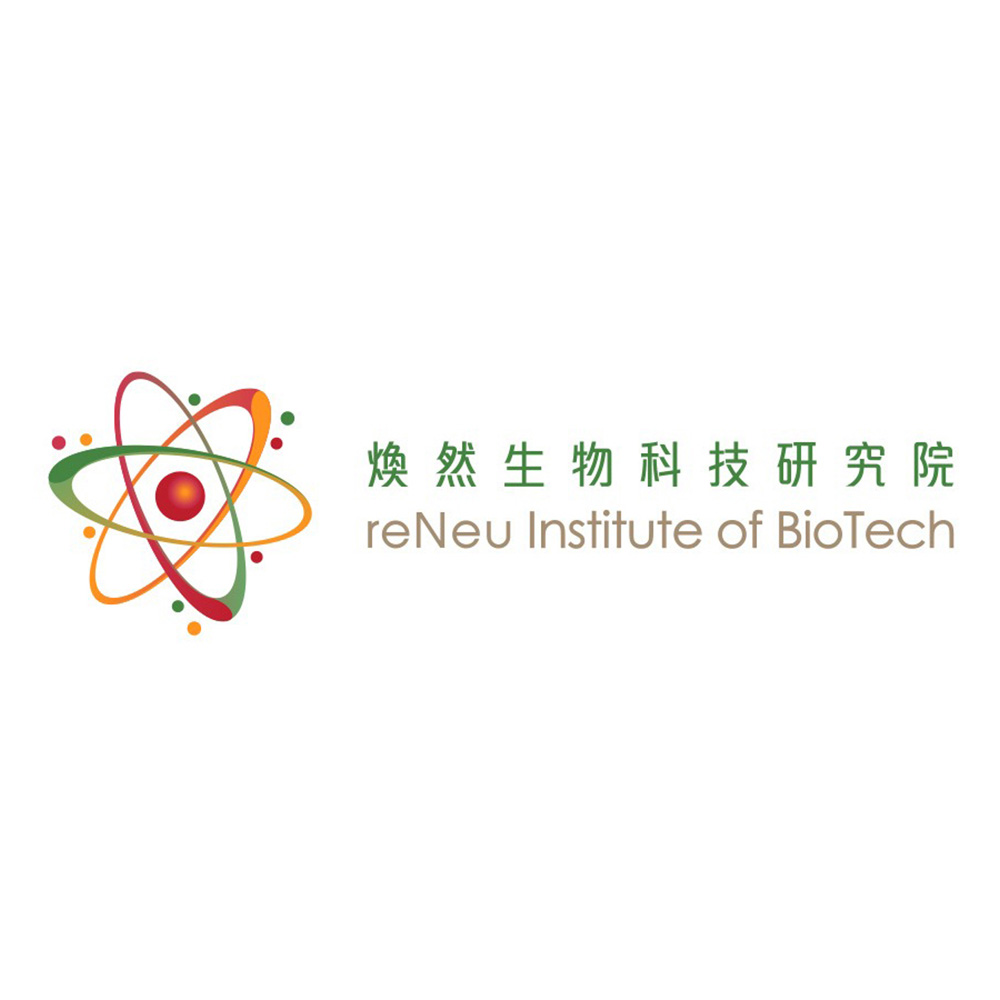
Purposes
reNeu Biotechnology Holdings has extensive experience in quantum re-neurology technology and clinical practices. Following our collaboration with Shermo Technology Company, we are now more capable of establishing a research institute to explore deeper opportunities that can create new technologies and innovations for human health in the following areas:
- Innovative Health Solutio ns for Environmental Health: With the increasing prevalence of chronic diseases among younger individuals and worsening condit ions in middle-aged and elderly populations, we focus on the impact of harmful substances in food, environmental pollution, and daily products. We are dedicated to providing innovative health solutions.
- Applying Quantum Reneuorology Technology for Health R estoration: With years of focus on quantum re-neurology technology research, our developed quantum reboot technology effectively eliminates heavy metals and harmful chemicals from the body, promoting health restoration.
- Activating Damaged Cells and Organs with Quantum Re-neurology boot Technology: Utilizing our proprietary quantum reboot technology, we can effectively activate and restore the he alth and vitality of cells, addressing issues of aging and sub-health, while enhancing overall vitality.
- Supporting Domestic Cord Blood Stem Cell Therapy: Through exclusive authorization, we provide nationally recognized cord blood stem cell regenerative medical services in exclusive hospitals in Beijing and Macau, as well as top-tier hospitals in Shenzhen and Guangzhou, re storing the body’s natural healing capabilities.
- Research and Clinical Theory Development: We collaborate exclusively with national-level hospitals in Beijing for scientific research, clinical studies, and applications in quantum technology and stem cells.”

Our Vision
In response to the government’s biotechnology policy and the recent policy address mentioning the development of Hong Kong as an international medical hub, as well as promoting Hong Kong as a clinical trial platform for the Greater Bay Area, we have established a Quantum Technology Research Institute. This institute focuses on conducting clinical case studies in quantum technology and regenerative medicine related to stem cells. Our goal is to develop and produce innovative products and technologies that address harmful toxins entering the human body and provide solutions for anti-aging.
Vision
To integrate quantum technology with stem cell research, fostering medical innovation and the development of biotechnology, while aligning with the Special Administrative Region government's policies and expectations to lead globally in the field of biotechnology.
What is Quantum Technology?
Quantum technology is a field based on the principles of quantum mechanics, with a wide range ofapplications across multiple domains. It primarily includes the following aspects:
- Quantum Computing: Utilizes quantum bits (qubits) for computation, significantly enhancing computing power compared to traditional computers, especially in solving complex problems such as optimization and simulation.
- Quantum Communication: Provides secure communication methods through technologies like Quantum Key Distribution (QKD), leveraging quantum entanglement and quantum uncertainty to ensure the security and privacy of information.
- Quantum Sensing: Employs quantum effects to enhance measurement precision, with applications in fields such as geological exploration and medical imaging, using devices like quantum gravimeters and quantum magnetometers.
- Quantum Materials: Focuses on researching and developing materials with unique quantum properties, such as topological insulators and superconductors, which hold significant potential for applications in electronics and energy.
- Quantum Simulation: Uses quantum systems to simulate other quantum systems, helping scientists understand complex quantum phenomena, including chemical reactions and material properties.
The development potential of quantum technology is immense, with the promise of addressing many current technological challenges and driving innovation and progress across various industries.
Quantum Biology
Quantum biology is an emerging interdisciplinary field that studies how the principles of quantum mechanics in fluence the functioning of biological systems, particularly at the microscopic level. It explores the role of quantum effects—su ch as quantum entanglement, quantum tunneling, and quantum interference—in biological processes and seeks to explain the quantum foundations of various biological phenomena.
Recent Research Developments:
These studies indicate that quantum biology not only aids in our understanding of fundamental life processes but also has the potential to drive the development of new technologies. With advancements in experimental techniques, more discoveries regarding the influence of quantum effects in biological systems are likely to emerge in the future.
Quantum Technology in Activating Unique Abilities of Human Cells
Research on the role of quantum technology in activating the functions of human cells is still in its early stages, but several potential applications and theories have garnered attention in the scientific community. Here are some possible unique abilities and their applications:
- Quantum Therapy: Studies suggest that quantum fluctuations may influence biological processes within cells. Some scientists are exploring therapies designed using quantum technology to promote cell repair and regeneration, particularly in cases of tissue damage or degenerative diseases.
- Quantum Dots: Quantum dots are nanomaterials valued for their unique optical and electronic properties. They can beused to label cells, track cellular activity, or deliver drugs, enhancing the targeting of treatments.
- Quantum Biology: This emerging field investigates the role of quantum effects in biological processes, such as photosynthesis and enzyme reactions. These studies may reveal how to harness quantum effects to enhance cell functions or facilitate chemical reactions within organisms.
- Non-Thermal Activation: Quantum technology may provide a non-thermal method for activating cells, potentially reducing cellular damage and increasing the safety and efficacy of treatments.
While these applications are still under exploration and research, the potential of quantum technology may lead to revolutionary changes in the fields of medicine and biotechnology in the future.
Quantum Technology for Eliminating Harmful Toxins from the Body
The application of quantum technology in the elimination of harmful toxins from the body is still in the research phase, but several potential functions and concepts are worth noting:
- Quantum Therapy: Some studies are exploring therapies that utilize quantum fluctuations or quantum fields to enhance the body’s natural detoxification processes. These therapies may work by modulating the energy states of cells, thereby boosting their self-repair and detoxification abilities.
- Quantum Dot Technology: Quantum dots are nanomaterials that can be engineered to target specific toxins or pathogens. These materials can recognize and bind to harmful substances within the body, helping to improve elimination efficiency and, in some cases, assist in drug delivery.
- Quantum Sensing: Quantum sensing technologies can enhance the sensitivity of detecting harmful substances within the body. Early detection enables healthcare professionals to take prompt action to assist the body in eliminating toxins.
- Applications of Quantum Biology: Research in quantum biology may reveal how to leverage quantum effects to facilitate chemical reactions within cells, thereby enhancing the body’s ability to metabolize and eliminate toxins.
- Non-Thermal Activation Techniques: Certain quantum technologies may provide non-thermal methods for activating cell functions, promoting the detoxification process without causing damage.
While these potential applications require further research and validation, the exploration of quantum technology in the elimination of harmful toxins shows promise and may lead to new approaches in the fields of medicine and health in the future.

Quantum Technology and Anti-Aging Research
Research on the application of quantum technology in combating aging is still in the exploratory stage, but several potential development directions have garnered attention from the scientific community:
- Quantum Biology: Studies suggest that quantum effects may play a role in cellular metabolism and repair processes. By understanding these quantum processes, scientists may discover ways to delay aging, such as promoting cellular self-repair and regeneration.
- Quantum Therapy: Some preliminary research is exploring how quantum therapies could activate cellular functions, potentially improving cell health and slowing down the aging process. These therapies might involve the use of quantum fluctuations or other quantum technologies to enhance cellular regeneration abilities.
- Quantum Dot Technology: Quantum dots can be used to label and track cells. Researchers hope to utilize these technologies to understand cellular changes during the aging process, leading to the development of treatments targeting aging.
- Quantum Optimization of Antioxidants: Quantum computing may assist in designing more effective antioxidants, which are compounds that can reduce oxidative stress—a significant factor in aging and various diseases.
- Gene Editing: Quantum technology could offer new methods in gene editing, enabling precise regulation of gene expression to slow down age-related biological processes.
While these studies are ongoing, the potential of quantum technology in combating aging is promising. With advancements in technology and deeper research, more concrete applications and results may emerge in the future.
Quantum Technology and Stem Cell Regenerative Medicine Research
Quantum technology is gradually demonstrating its potential an d innovation in regenerative medicine, particularly in the application of stem cells. Here are some of the latest developments a nd directions in this field:
- Quantum Biology and Stem Cells: Research indicates that quantum effects may play a signific ant role in the differentiation and self-renewal processes of stem cells. By understanding these quantum mechanisms, scientists may be able to better control stem cell behavior, thereby enhancing the efficacy of regenerative medicine.
- Quantum Dot Technology: Quantum dots can be used to label and track stem cells, helping researchers observe the dynamic behavior and differentiation processes of stem cells in vivo. This aids in improving the precision and safety of stem cell therapies.
- Quantum Sensing Technology: Quantum sensors can detect changes in the microenvironment of stem cells, which may impact their functionality and differentiation. By precisely measuring these changes, researchers can adjust environmental conditions to promote optima l stem cell performance.
- Applications of Quantum Computing in Stem Cell Research: Quantum computing may assist in simulating and analyzing the complex behaviors of stem cells, accelerating the development and screening of new therapies. This computational power can process vast amounts of data, revealing potential mechanisms underlying stem cell behavior.
- Improved Stem Cell Cultivation Techniques: Quantum technology has the potential to enhance the conditions for stem cell cultivation by adjusting energy inputs to promote stem cell proliferation and differentiation, thereby increasing their therapeutic potential.
These new developments highlight the potential applications of quantum technology in regenerative medicine and stem cell research, which may lead to revolutionary changes in stem cell therapies. As research deepens, the practical application of these technologies is expected to have a significant impact on clinical medicine.
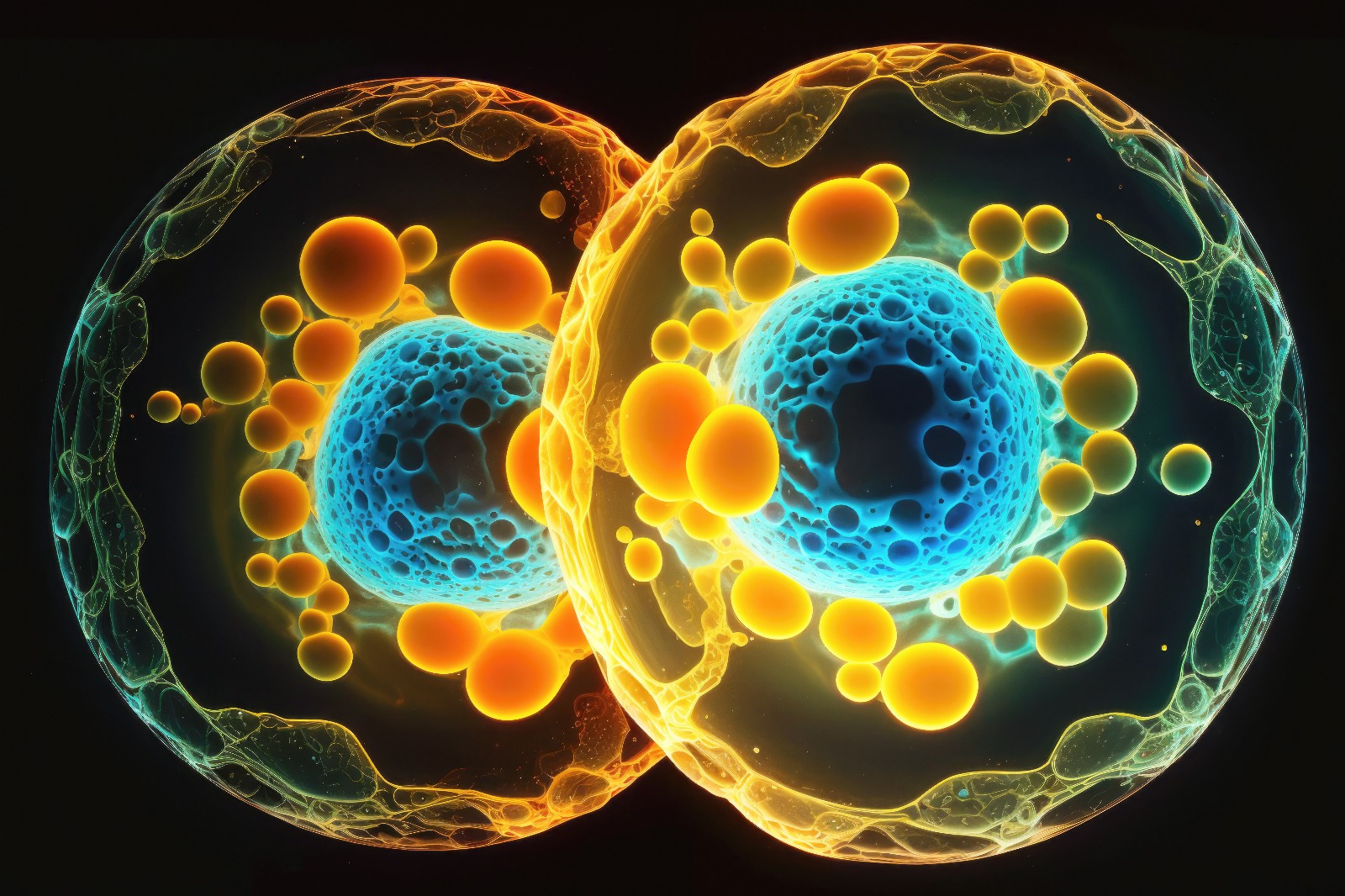
Stem Cells
Stem cells (STEM CELLS) are primitive cells in the body that possess the ability to self-replicate and different iate into multiple cell types. Under certain conditions, stem cells can be induced to differentiate into various functional cell s, such as nerve cells, liver cells, and cardiomyocytes, contributing to over 220 different types of cells in the human body. Th ey are the origin cells of our organism and are essential for forming the various tissues and organs within the body. Stem cells can be found in early embryos, the placenta and its derivatives, bone marrow, peripheral blood, and adult tissues.
Stem cell technology, also known as regenerative medicine technology, refers to the processes of isolating stem cells, culturing them in vitro, directing their differentiation, and even modifying their genes to cultivate new, normal, or even younger cells, tissues, o r organs. Ultimately, this technology aims to treat clinical diseases through the transplantation of cellular tissues or organs.
Research Focus of the reNeu Biotechnology Research Institute
The reNeu Biotechnology Research Institute has signed a memorandum of understanding for research collaboration with Heji Technology Co., Ltd. The collaboration aims to unite experts from both locations to study the applications of quantum technology in cell therapy, particularly focusing on its effectiveness in anti-aging through both research and clinical case studies.
The research findings are expected to lead to the development of abiological detection system supported by quantum technology, including anti-aging detection instruments, health management record devices, and artificial intelligence and cloud services for anti-aging.
Clinical Research
The institute is inviting medical experts from both domestic and international backgrounds to participate in various clinical project studies. There are also plans to hire postdoctoral researchers in biotechnology and quantum engineering to join the efforts.
Interested domestic and international researchers who wish to participate in this initiative are encouraged to contact us.
The Advisors of the reNeu Institute of Biotechnology (In No Particular Order)
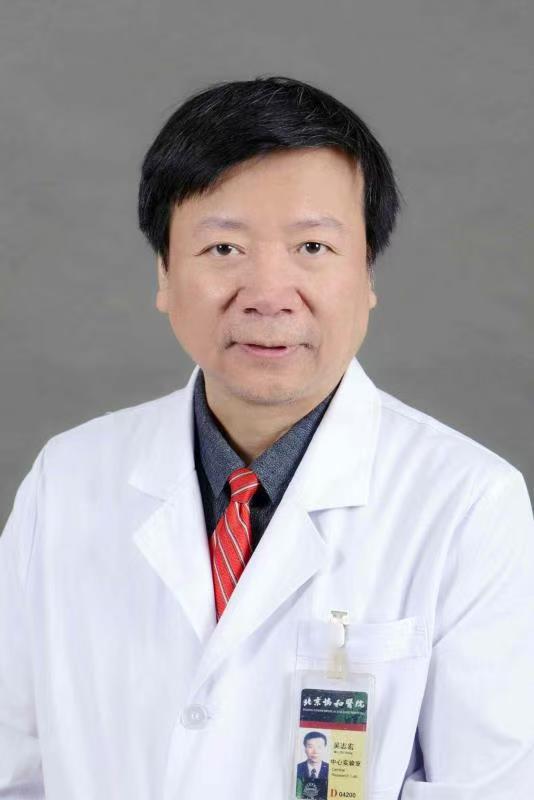
Professor Wu Zhihong
Director of the Stem Cell Platform and
Clinical Medicine Professor at Peking Union Medical College Hospital,
Chinese Academy of Medical Sciences
Advisor, reNeu Biotechnology Research Institute
Chief Physician of Orthopedics at Peking Union Medical College Hospital, Chinese Academy of Medical Sciences, Professor, PhD supervisor in Clinical Medicine and Biomedical Engineering, Director of the Stem Cell Platform and Director of the Experimental Animal Center at Peking Union Medical College Hospital, Deputy Director of the Clinical Medical Research Institute of the Chinese Academy of Medical Sciences, and Deputy Director of the Beijing Key Laboratory of Genetic Research on Skeletal Malformations.
Editorial board member of the Chinese Journal of Bone and Joint Surgery and a member of the Bone Tissue Bank Branch of the Chinese Association of Medical Biotechnology. Engaged in basic and clinical research on common and frequently occurring orthopedic diseases for a long time, guiding the research work of over 40 master’s and doctoral students; coordinating and organizing the application and implementation of more than 40 various research funds from different sources. Currently undertaking a project on industry-university-research cooperation supported by the Beijing Education Commission, and has participated in multiple research efforts, such as the Ministry of Health’s key discipline construction project, the multi-disciplinary “Ninety-Five” National Medical Science and Technology Key Project, “Fifteen” National Science and Technology Key Project topics, National Support Program projects, specific research topics funded by health care, scientific funds from the Ministry of Health, Beijing Science and Technology Commission funds, doctoral funding, and internal hospital funds. He has published over 100 articles and contributed to the writing of works such as “New Surgical Techniques in Spine Surgery”
(Second Edition), “Modern Surgery,” and “Surgical Science of Scoliosis.” He has received the Second Prize of the Chinese Medical Science and Technology Award in 2004, the Second Prize of the Beijing Science and Technology Award in 2004, and the Second Prize of the National Science and Technology Award in 2005.”
Professor Zhao Jinjun
Doctor of Economics, Professor
Founder and Chairman of Hexie Technology
Advisor, reNeu Biotechnology Research Institute
Doctor of Economics, Professor, and PhD supervisor. Founder, Chairman, and General Manager of Hexie Technology Co., Ltd. Previously worked at the Hospital Management Institute of the Ministry of Health, the Central Committee of the China National Democratic Construction Association, and the Primary Health Care Foundation of China.
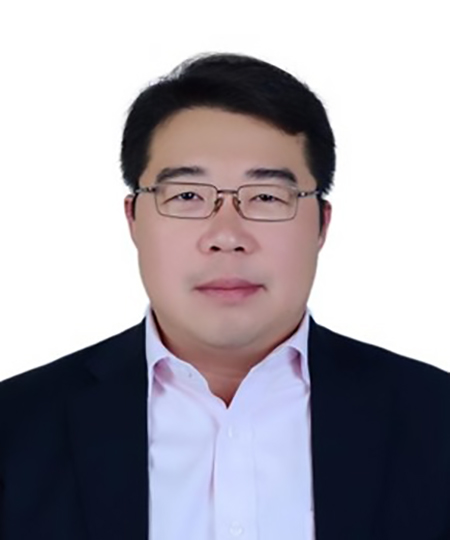
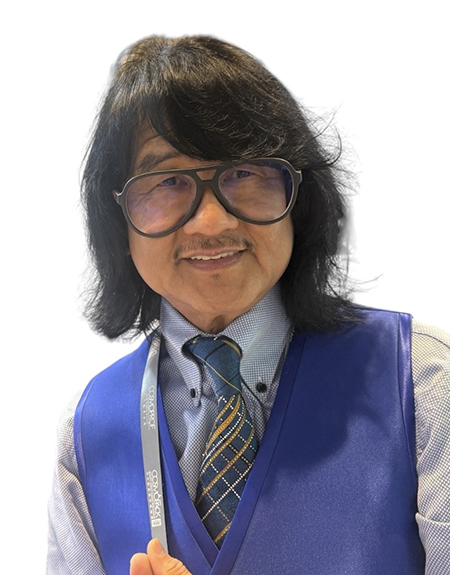
Professor Dr. Dato’ Sri. Dr. Mike Chan
Chairman and Senior Researcher
European Wellness Biomedical Group
Advisor, reNeu Biotechnology Research Institute
Prof. Dato Sri Dr. Mike K.S. Chan, is a pioneer of Cellular, Organo and Cell Membrane Therapies in Europe and Asia since the earl y 1980’s. He founded one of the world’s largest research groups of Bio-Molecular Medicine based in Switzerland and Germany wih a global presence in almost eighty countries. He has conducted more than 1,000 lectures, seminars, and symposiums worldwide in the fields of antiaging, cell regeneration, bio-re-generative medicine, and stemcell therapies. Author & co-author of numerous books and articles in the fields of cell therapy, immunology, bio-regenerative sciences, nutrition, and innovator of cellular based nutraceuticals &cosmeceuticals, Prof. Mike Chan is also the founder of European Wellness Biomedical Group-an International chain of research and treatment facilities (European Wellness Centers & Retreats) in-volved in anti-aging, longevity and education (European Wellness Academy). He chairs and also sits on board on numerous prominent antiaging and cell therapy associations of the world.
